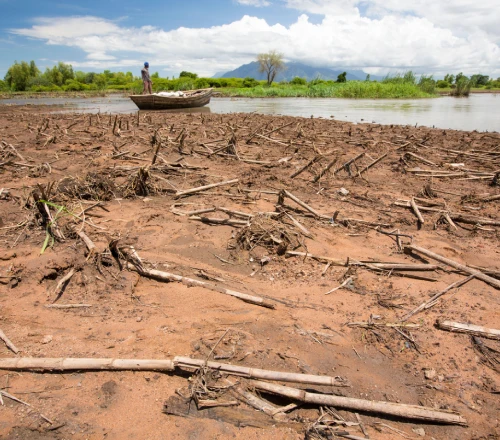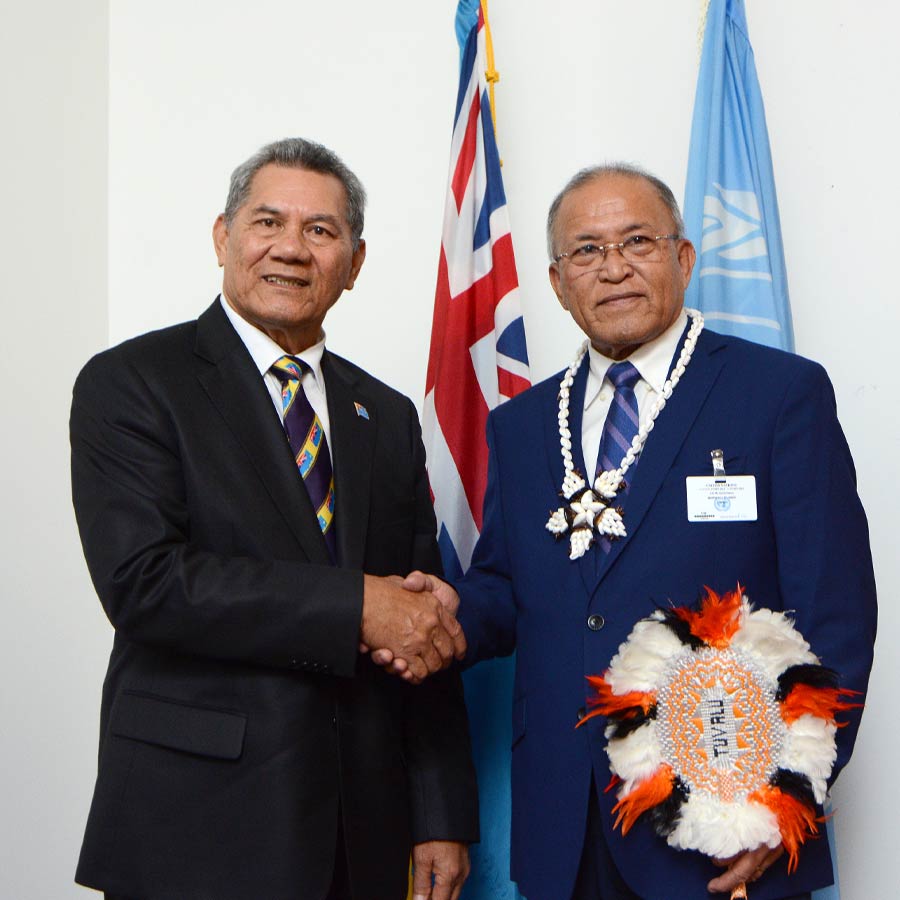The Global Centre for Climate Mobility (GCCM) extends its heartfelt congratulations to all affected countries and communities, particularly Small Island Developing States (SIDS), low-lying coastal States, and climate advocates worldwide, on the historic Advisory Opinion delivered by the International Court of Justice (ICJ) concerning the obligations of States with respect to climate change amidst the climate crisis.
In its opinion, the Court emphasized that the rising sea levels and broader impacts of climate change represent an “urgent and existential threat,” underscoring the critical need for strengthened international action.
Significantly, the ICJ affirmed the principle of statehood continuity in international law, clarifying that once a State is established, the disappearance of one of its constituent elements—such as territory partially lost to sea-level rise—does not automatically result in the loss of statehood. This provides vital reassurance to vulnerable nations whose very existence is imperiled by climate change.
On maritime entitlements, the Court determined that States are “under no obligation to update charts or lists of geographical co-ordinates” solely due to physical changes caused by sea-level rise, thereby safeguarding the permanent legal rights of States over their maritime zones.
The ICJ also underscored the human dimension of the climate crisis, recognizing that conditions arising from climate change—such as those likely to endanger lives—may compel individuals to relocate or prevent them from returning to their homelands. The Court held that States have obligations under the principle of non-refoulement wherever there are substantial grounds to believe there is a real risk of irreparable harm to the right to life.
Further, the Court reaffirmed that all States have a customary duty to cooperate in addressing the existential threats posed by climate change, a duty which lies at the heart of the United Nations Charter.
Through the Rising Nations Initiative (RNI), the GCCM has played an instrumental role in elevating the existential threats of sea-level rise within the global agenda. The RNI’s efforts supported the creation of the Coalition for addressing Sea-level rise & its Existential Threats (C-SET), which galvanized cross-regional support and culminated in the first-ever Sea-Level Rise Summit convened by the UN General Assembly on 25 September 2024.
With this landmark opinion, the international community is now poised to advance the General Assembly process towards an ambitious Declaration in 2026, dedicated to addressing the existential threats posed by sea-level rise. The GCCM reaffirms its commitment to continue supporting SIDS, low-lying coastal States, and all affected communities, working collectively to secure a sustainable and dignified future for those most at risk.
Media Inquires: Jaclyn Licht | licht@climatemobility.org
About GCCM:
The Global Centre for Climate Mobility (GCCM) is a global entity at the intersection of climate action and human mobility, enabling positive adaptation journeys for people and communities on the frontlines of the climate crisis, upholding their adaptive capacities and the Right to Stay. Hosted at the United Nations Office for Project Services, the GCCM is supported by champion countries, UN Agencies, the World Bank, regional organizations, philanthropies, civil society, and research institutions. The GCCM advances positive community transitions in climate-vulnerable regions through regional initiatives that support governments and frontline communities to anticipate, plan for, and respond to climate mobility, including the Africa Climate Mobility Initiative (launched in 2021), the Greater Caribbean Climate Mobility Initiative (2022), the Pacific Climate Mobility Initiative (2023), and the Coastal Cities Initiative (2025). The GCCM also enables the Rising Nations Initiative (RNI), which is dedicated to addressing the existential threats posed by sea-level rise. The GCCM is structured around four core Practices: the Knowledge & Policy Hub, the Solutions Lab, the Communities Climate Adaptation Facility (C-CAF), and the Climate Mobility Academy, through which the Centre delivers modeling & research, co-creates locally led solutions, informs policy, fosters partnerships, and builds capacity across the climate mobility ecosystem. It serves as the secretariat for the Coalition for Addressing Sea-Level Rise and its Existential Threats (C-SET), the Ocean Rise & Coastal Resilience Coalition, and the Climate Mobility Elders Group (C-MEG).









